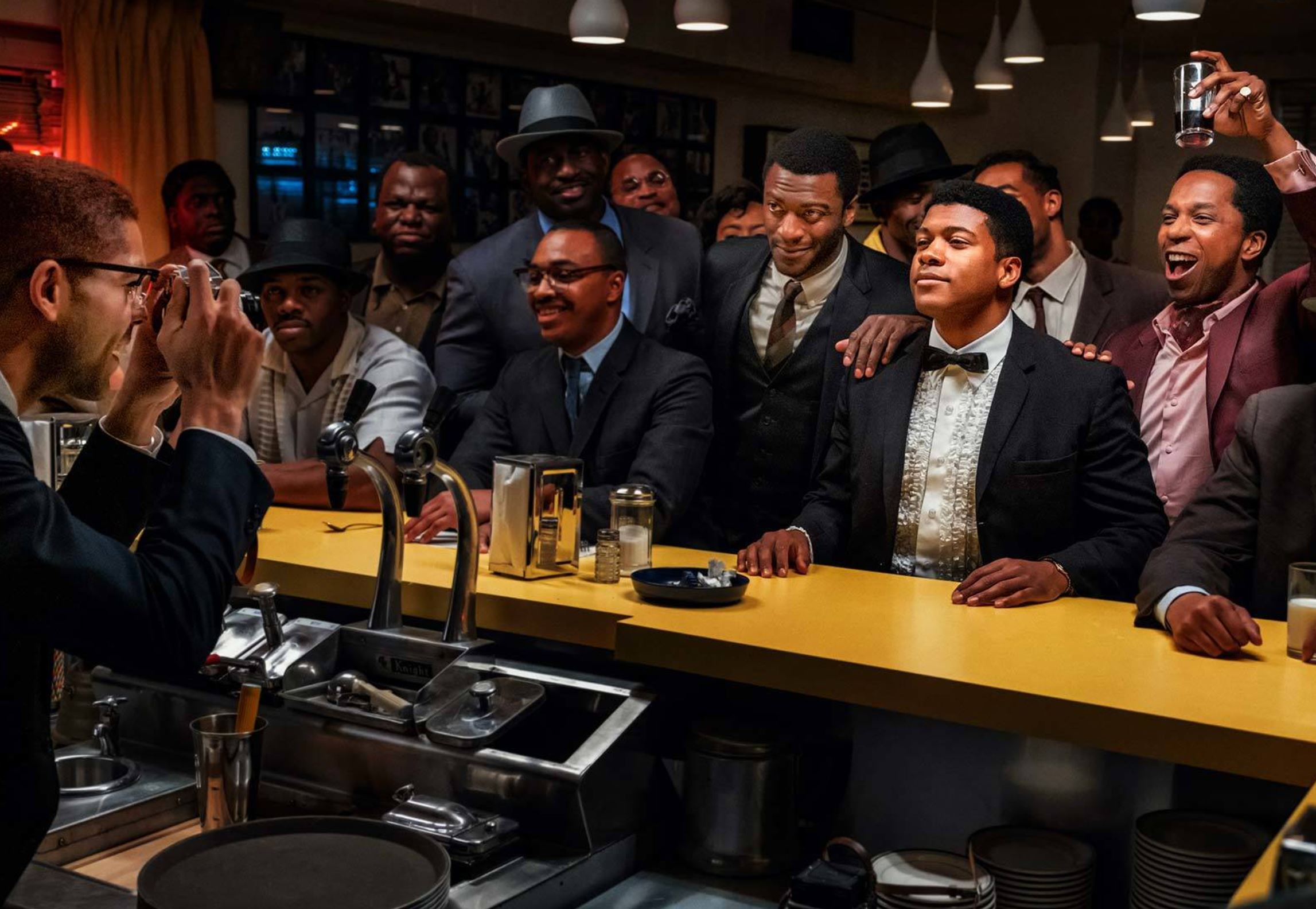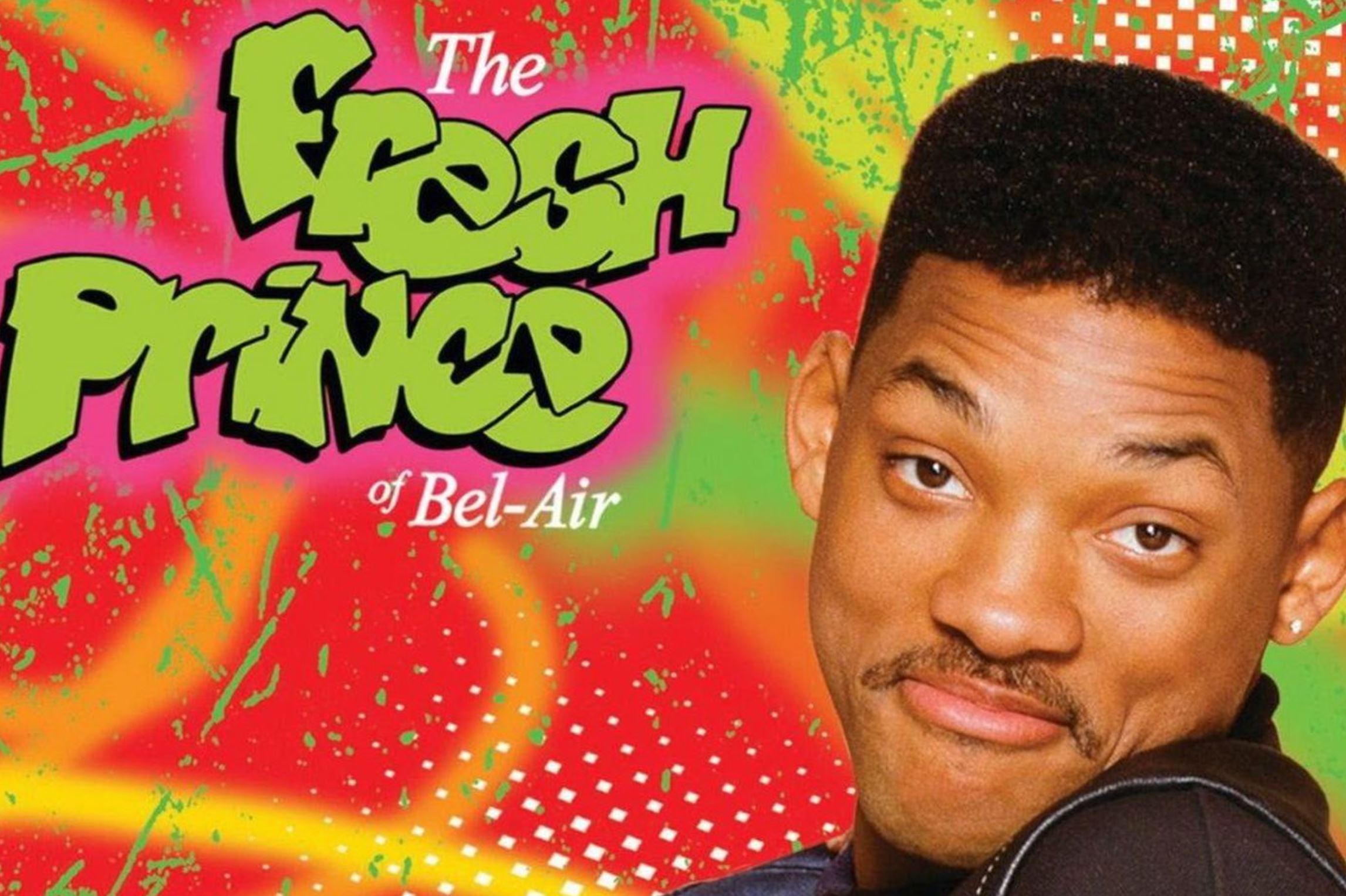TIFF Review: One Night in Miami



Adapted by Kemp Powers from his own play and directed by Regina King, One Night in Miami is a fictionalization of a night in February 1964 when Cassius Clay (Eli Goree, Riverdale and Ballers) becomes the heavyweight champion of the world after a surprise victory over Sonny Liston. After the fight, Cassius—who has not yet changed his name to Muhammad Ali, and thus will be referred to as his character name in the film—is joined by his friends: singer and record producer Sam Cooke (Leslie Odom, Jr., Hamilton), football star Jim Brown (Aldis Hodge, The Invisible Man), and Malcolm X (Kingsley Ben-Adir, High Fidelity), who is mentoring Cassius as he converts to Islam and joins the Nation of Islam. This meeting really happened, and One Night in Miami is an imagining of the conversation these four icons could have had that night. Comparisons to the jukebox musical Million Dollar Quartet are inevitable, but One Night in Miami is much more nuanced than that.
The film begins by situating each of these men in their present—not our memory of them as historical figures, but where they were in early 1964. Sam Cooke is bombing at the Copacabana, largely rejected by white audiences despite making music to appeal to them. Malcolm X is an established civil rights leader and figurehead in the Nation of Islam, but he is straining under increasing paranoia and pressure from his falling out with the head of the Nation, Elijah Muhammad. And Cassius is coming off a fight he barely won against Henry Cooper, but is still confident and self-aggrandizing, and so charismatic he dominates every space he enters.
But it’s Jim Brown that really sets the tone for Miami. Visiting his home in Georgia, he stops by the “big house” where Mr. Clayton (Beau Bridges) welcomes him enthusiastically, gushing over his success in the NFL. He mentions that their families have “always taken care of each other”, and neither Bridges nor Hodge betray the moment, but it sends a shiver down modern spines—there is only one interpretation of that. Then, offering to help the older man move furniture, Jim is rebuffed. They don’t let Black people in the house, but Mr. Clayton uses a very different word. This moment establishes how King handles the entire film. It is not overplayed, there is no dramatic swell of music or lingering camera movement to drive home the point already made. The utter banality of the racism makes it land that much harder, and perfectly demonstrates what each of these men, despite all their successes, is up against in white America, and why Malcolm is so impassioned about achieving Black excellence separate from white acceptance.
Each of the four main actors turns in a great performance, but Goree and Ben-Adir are the real standouts. You can practically feel the ulcer Malcolm must be developing, stressed by constant surveillance and the growing rift with the Nation of Islam. And Goree nails the supreme confidence and charm of a great athlete who is as much entertainer as he is champion. Cassius is loud and compelling, and his moments of self-doubt are bracketed by an almost unholy drive to conquer everything in sight, which undoubtedly feeds his public displays of competitiveness. King never underscores the point, though, she just gives Goree all the room he needs to work and photographs the result beautifully (the film is lensed by Tami Reiker, who also shot The Old Guard).
And “room” is an interesting concept in Miami. You can tell this started as a play, being dialogue heavy and mostly set within one location. But King never tries to trick us into thinking the space is bigger than it is, she doesn’t move her camera ceaselessly or manipulate the setting to try and create a sense of unearned space. Instead, she pares everything back, letting the performances breathe and fill up the motel room. With Goree and Ben-Adir, that motel room feels huge, filled by their presence. Hodge is a good stabilizing force as Jim, providing a more wearied foil to Cassius’s enthusiasm, and Odom shines as Sam, though his best moment comes at the end of the film, when he recreates Cooke’s performance of “A Change is Gonna Come” on The Ed Sullivan Show.
One Night in Miami is a historical drama that breathes with life and vivacity, expanding past the bounds of a motel room to embrace both the American Civil Rights movement at a key moment and the echoes of that moment are still reverberating today. There are any number of ways this film could have gone wrong, from the chintzy—like Million Dollar Quartet—to the melodramatic, but King’s command of space and the variated tones of the performances thread the needle perfectly. The result is an engaging snapshot of what-might-have-been that is as entertaining as it is resonant.

